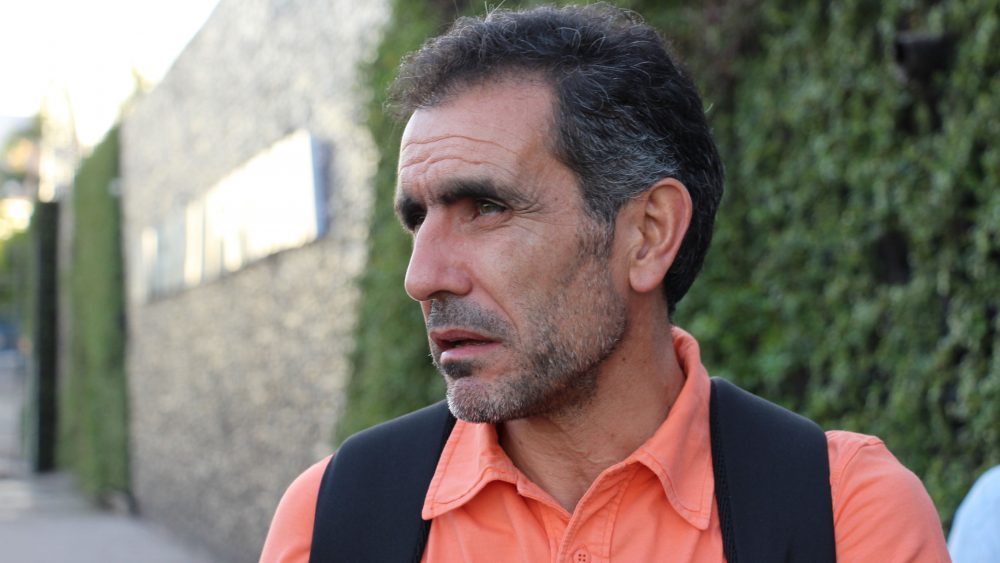The scientist, member of the University of Bath’s Department of Biology and Biochemistry, specified that he is dedicated to the research about Salmonella because it is the main pathogen associated with foods in the world, and detailed: “I began working in the detection, and from detection, to the characterization, and then to the molecular epidemiology, and now we are doing genomics”. As for the Vibrio: “… it seems to me that this is a fascinating bacteria, because Vibrio is an organism that naturally lives in the marine environment, and suddenly certain specific populations cause diseases. Nobody understands why a bacteria which is normal and lives in the environment becomes pathogen and suddenly can cause an epidemic; and, despite all the years of research and efforts, it still cannot be clearly understood”.
In his article “Climate change and pathogens in the water: El Niño phenomenon and its impact in health” he emphasizes the irreversibility of the climate change originated by the global warming produced by human activities and he writes about the possibility of, based on his researches, predicting new Vibrio outbreaks. To the express question about why predicting but not preventing, he explained: “We try to develop models that may predict the adequate conditions for the presence of the pathogen, if you are capable of anticipating and knowing when there are risk periods, you can implement measures and one of the most important measures is avoiding exposure: then, by avoiding people from exposure to this pathogen, you will reduce the infections. And through these measures you will reduce the total of infections’ cases, and that will beneficially affect not just in health but also in economy”.
Great part of this biochemist’s researches in diverse coasts and nearby areas in Africa and America (included the Mexican bay Todos Santos and the valley of Culiacán) are related to global warming. And, in this sense, it should be pointed out that, according to the Mexican Report of Climate Change, 46.2% of the 120 millions of Mexicans are currently enduring the effects of such phenomenon, among which is mentioned the diseases transmission, and it is emphasized that are precisely the coastal zones the more affected. Thus, Martínez-Urtaza shared part of his discoveries in the matter of the consequences that this phenomenon has on the emergence and spread of epidemics.
“When we talk about climate change we always think in it in general terms, but the climate change has a very important impact regionally. Basically, some extreme weather events are pronounced, more intense rains and hotter temperature. Well, the combination of these two factors is going to influence the survival of these pathogens in the environment; and if they are going to live longer, they are going to be transmitted with greater ease. That is, more or less, the theoretical framework we work.”
“What happens with the coasts? Well, if you work with Vibrio, this is a bacteria fond of warm environments and a low salinity, for example; when there is plenty of rain, sea’s salinity decreases and the climate change heats up the zones, thus the areas which are going to be propitious for those organisms to exist are going to broaden with climate change: those bacteria are going to appear in more places (which is what we are studying and detecting in our studies). In general terms, Vibrio diseases are spreading to the poles, reaching latitudes more to the North and the South; until some years ago, it was almost just in tropical and subtropical zones, and in the last researches we have finished, we have detected Vibrio associated diseases up to 60 miles from the Artic Circle.”
The aforementioned Mexican Report of Climate Change emphasizes the fact that, despite the decades of scientific research about global warming, the information that reaches to Mexican population —which main source is the governmental sector— still insufficient and unreliable. Martínez-Urtaza declared that in order to improve such perception it is essential to divulge the scientific labor, and assured: “It is our function as scientists to be always trying to make the greatest divulge activities of our results and those works we are involved in; but it is also truth that our activity is so frenetic that we don’t have many opportunities for those matters. […] It must be recognized that it ain’t easy and the Governments don’t assemble the mechanisms so we can do this type of divulgations”.
Written and translated by Belem Ruiz (Edition and Communication, PIT-UAS).



 Parque Científico Tecnológico, Universidad Autónoma de Sinaloa © 2015
Parque Científico Tecnológico, Universidad Autónoma de Sinaloa © 2015